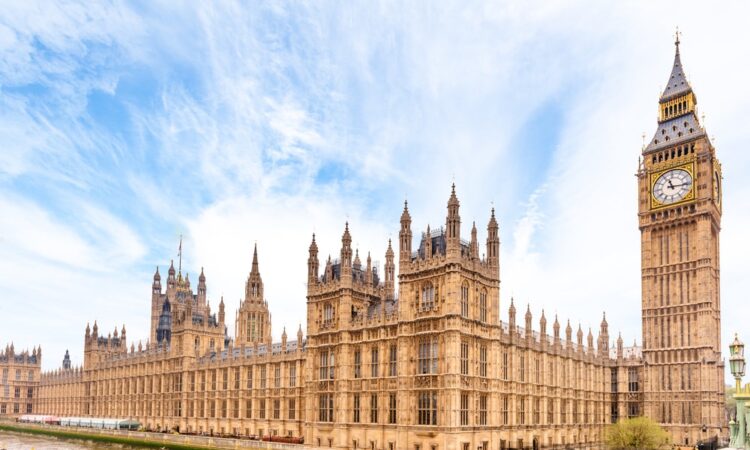
Chancellor, Jeremy Hunt, has provided further updates on a number of pension reforms and initiatives as part of his 2024 Spring Budget, confirming that he will continue to explore the potential for a pot for life model and work to encourage greater investment in the UK.
During his Budget, the Chancellor stressed the need to ensure that UK pension schemes are investing in the UK economy, confirming that the government “will build on the Edinburgh and Mansion House reforms to unlock more pension fund capital”.
He stated: “We’ll give new powers to The Pensions Regulator and the Financial Conduct Authority (FCA) to ensure better value from defined contribution (DC) schemes by judging performance on overall returns, not cost.
“We’ll make sure there are vehicles to make it easier for pension funds to invest in UK growth opportunities so I’m today publishing the names of the winners of the Long-term Investment for Technology and Science (Lifts) competition.”
“But I remain concerned that other markets, such as Australia, generate better returns for pension savers with more effective investment strategies and more investment in high-quality domestic growth stocks,” the Chancellor added.
“I will introduce new requirements for DC and local government pension funds to disclose publicly their level of international and UK equity investments and then consider what further action should be taken if we are not on a positive trajectory towards international best practice.”
Indeed, the government recently announced that it is looking to require defined contribution (DC) schemes to disclose their level of investment in the UK and to prevent underperforming schemes from taking on new business.
LGPS
The Budget papers confirmed that the government will also introduce equivalent requirements for Local Government Pension Scheme funds in England & Wales as “early as April 2024”.
It also confirmed that the government will review what further action should be taken if this data does not demonstrate that UK equity allocations are increasing.
However, industry experts have warned that while well-intentioned, these plans could risk having unintended consequences or being limited in their effect, and could result in a “very risk averse” attitude in the pensions industry.
In addition to this, the government said that it will work with the Local Government Pension Scheme (LGPS) to consider the role it could play in unlocking investment in new children’s homes.
Revised annual reporting guidance will also require LGPS funds to provide a summary of asset allocation, including UK equity investment, as well as provide greater clarity on progress of pooling, through a standardised data return, taking effect from April 2024.
Value for money
The papers also provided further updates on government plans to prevent underperforming schemes from taking on new business, confirming that the government is working with the FCA and TPR on the upcoming value for money (VFM) pensions framework as part of this.
The framework will highlight where schemes are focusing on short-term cost savings at the expense of long-term investment outcomes, and where schemes’ current scale may be preventing them from offering value to savers.
“Where schemes are persistently offering poor outcomes for savers, the FCA and TPR will have the full range of regulatory powers available, and the government expects them to use the powers; these include closing a scheme to new employer entrants and, where necessary, winding up a scheme,” the papers stated.
The papers confirmed that the FCA’s spring VFM consultation will include proposals to require the publication of contract-based DC default funds’ historic net investment returns and a breakdown of their UK investments.
The proposals will require schemes to compare their performance, costs and other metrics against those of at least two schemes managing over £10 bn in assets, although this is an initial level expected to increase significantly over time.
In line with this, the government confirmed that it will legislate at “the earliest opportunity” to apply the VFM framework across the market and provide TPR with new powers, using secondary legislation if necessary to ensure key disclosures are in place by 2027.
More broadly, the Chancellor also confirmed plans to regulate environmental, social and governance (ESG), with the Treasury’s full response on plans for this and a legislative timeline expected to follow shortly.
The government also said that it remains committed to supporting pensioner incomes by maintaining the triple lock.
According to the Budget papers, in 2024-25, the full yearly amount of the basic state pension will be £3,700 higher, in cash terms, than in 2010, which is £990 more than if it had been uprated by prices, and £1,000 more than if it had been uprated by earnings (since 2010).
More broadly, the government also confirmed that it will introduce legislation in Spring Finance Bill 2024 to ensure that the commissioners of HMRC can accommodate the detailed provisions necessary for the treatment of funds transferred from a collective money purchase (CMP) scheme in the process of winding up.
Further consequential tax changes will then be made through secondary legislation to authorise payments made during the wind-up process.
The measure will have effect from Royal Assent to Spring Finance Bill 2024.






